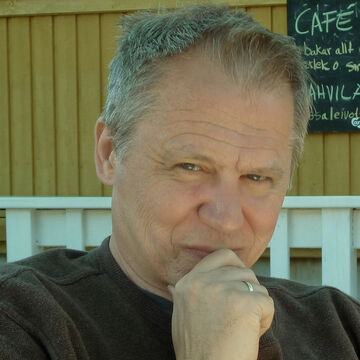

Shawn Decker
Professor
Contact
Bio
Shawn Decker is a composer, artist, and teacher who creates sound and electronic media installations and writes music for live performance, film, and video. His is positioned at the intersection of music composition, the visual arts, and performance, using physical and electronic media to investigate, simulate and praise the natural (and unnatural) worlds. He frequently collaborates with other artists, including most recently Jan Erik-Andersson, Anne Wilson, and Jan Tichy. As an artist whose work spans multiple disciplines, from making use of technology and technological processes on the one hand and incorporating the study of birdsong and ornithology, and traditional elements such as Irish and American folk fiddle-traditions on the other – merging physical elements and techniques from sculpture with environmental sound and music performance, Decker sees art and art-making within a very broad context. As a senior faculty member at the School of the Art Institute of Chicago, education is another element within his broad-based practice, with teaching supporting artistic production, and vice-versa.
His work has been frequently performed, seen, and heard in the US, Europe, and Asia at a wide variety of venues. He frequently collaborates with other artists, including most recently Jan Erik-Andersson and Anne Wilson. Recent exhibitions of both solo and collaborative work have shown at venues such as: the Kiasma Museum in Helsinki, the Museum of Art and Design in New York, the Chicago Cultural Center, the Pritzker Pavillion in Chicago’s Millenium Park, the Minnesota Museum of American Art, the Victoria and Albert Museum in London, CAM Houston, the 2003 Biennial of Electronic Art in Australia, Art Basel Miami, the Klosterruine in Berlin, ISEA2002 in Nagoya, the 21st Century Museum in Kanazawa, Japan, the Indianapolis Museum of Art, CAM Houston , ISEA2000 Paris, the Waino Aalto museum in Turku, Finland and numerous others. Decker is a Professor in the Art and Technology and Sound departments at the School of the Art Institute of Chicago.
For More information on Decker’s work, visit his web site at www.shawndecker.com.